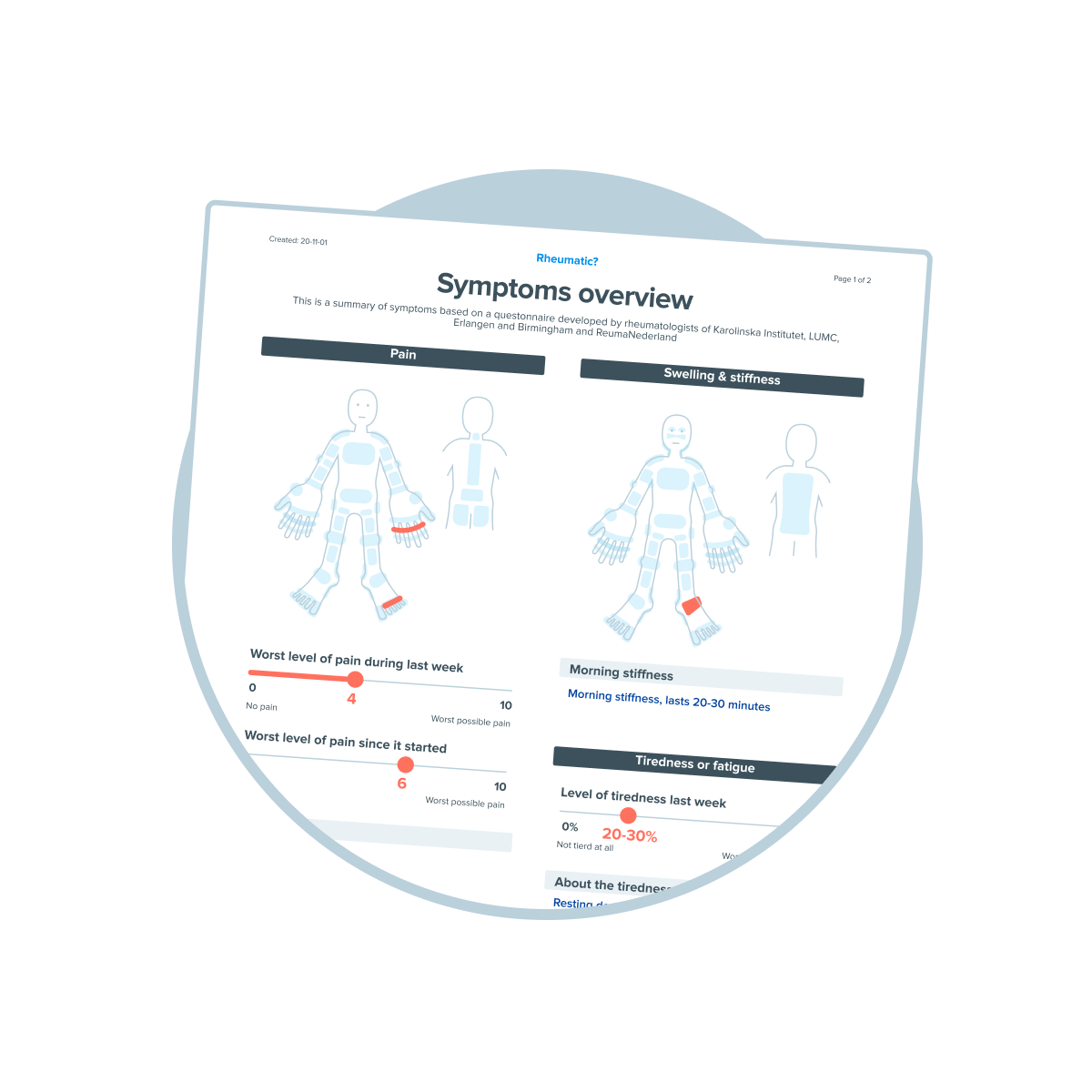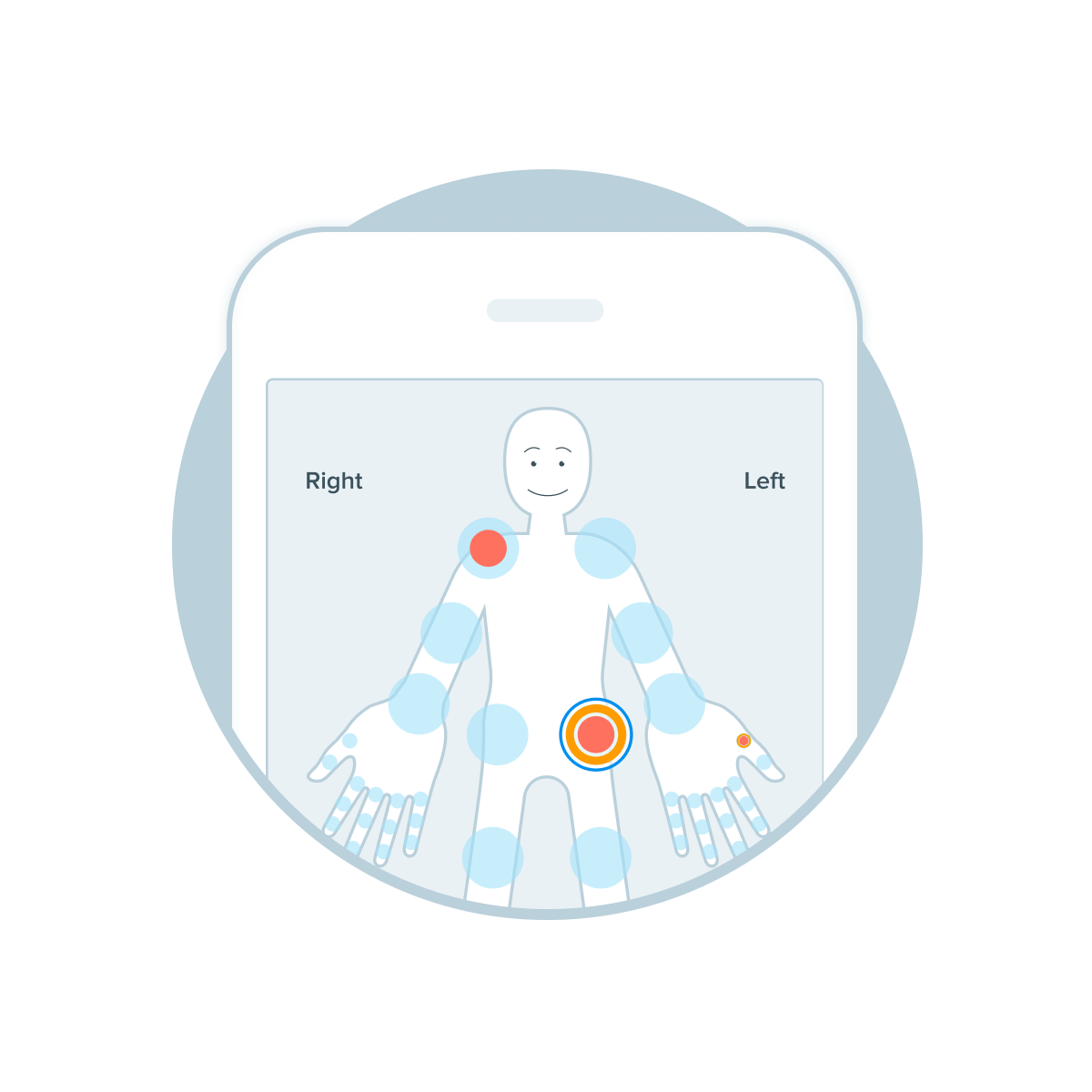Digital Tools Tailored for Rheumatic Care
Putting the patient in the front seat
Elsa Science strongly believes that the management of chronic care can be improved by true, structured involvement of the patient. Patients’ everyday knowledge and insights about their symptoms can help inform the healthcare system and enable earlier diagnoses as well as more timely and personalised treatment decisions. Through our Rheumatic Care solution, we capture this data, making it accessible to the right part of the healthcare system at the right time.
We are committed to developing new kinds of collaboration tools and services for patients, healthcare providers and payers. By tailoring them to rheumatic diseases, we ensure relevance for all users and stakeholders, as such complementing current care practices and improving future care.
Elsa Science is a catalyst for value-based rheumatic care by empowering patients to adopt better health behaviors, helping providers improve treat-to-target and supporting the healthcare system to enhance care quality while reducing costs. Here’s how:


